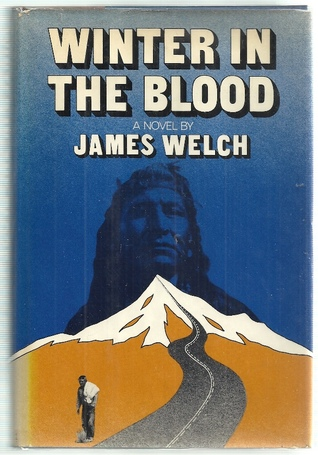James Welch
As your fingers are typing on the computer searching for the many authors in this world that there are, you come to find out how much is out there on the internet that we are accessed to. It is such a simple task that I never find myself thinking about it, as we are so fortunate to be provided with so much information. Throughout this course we learn a lot about the key factors of the theme of identity and the importance of knowing your true self. During my research there have been a lot of connections made to the concept of the main source we learn about.
 |
| James Welch (November 18, 1940- August 4, 2003) |
One of the authors that caught my eye by surprise was the man who went after the name James Welch. His life was lived to the fullest as he was extremely successful in his writing career and met numerous amounts of achievements. Which did make his name well known to the public as he will always be remembered. Unfortunately he passed away due to lung cancer at the age of sixty-two years old in Missoula, Montana on Monday, August 4 in 2003.
James Welch was known for being a Native American novelist as well as a poet. He was born in Browning, Montana on November 18, 1940. (1) He grew up within the Blackfeet and A'aninin cultures of his parents. He was recognized as the founding author of the Native American Renaissance. (2) When it comes to the idea of identity he has a lot of interesting past things about him. His life once did play a significant role in the sense of this topic. Welch received his Indian bloodline from his mother from what is called the Gros Ventre tribe, and from his father, of the Blackfeet tribe. He had as much Irish as he did Indian ancestry in his blood but he was specifically brought up in Indian territory. (2) His main goal was to explore Native American life in his writing, both its good and bad aspects as people struggled with modern United States culture. In American literature there is a specific name that will always stand out, that is James Philip Welch Jr.
 |
| (Colored photo) |
As you might be interested in some background knowledge about this author I want to point out special information about his life growing up. Welch lived his early childhood years on reservations and attended elementary school on the Blackfeet and Fort Belknap reservations. It is talked about with great significance as it is the agency headquarters for the Fort Belknap Indian Reservation. The Gros Ventre and the Assiniboine, who were former enemies that had been living there ever since it was set aside for them in 1887. Cultural connections are made through the tribes, petroglyphs, and tipi rings. Growing up Welch was educated on a completely different level than most others. After his young education experience he eventually moved to Minneapolis, Minnesota. This was where he graduated from Washburn High School in the year of 1958. As I talked about where he is from previously, interesting enough he attended the University of Montana which is where his future began to spark. He began to write poetry here and earned a B.A in liberal arts in 1965. (4)
 |
| Published in 1986, Native American Author James Welch |
The world we live in and the things we as people live our lives by is something so important. As we are unaware of any sudden tragedy to occur. Dreams and visions help the Pikuni people understand their world as well as surroundings. To be more specific the meaning behind Pikuni had a strong religious and spiritual culture. It was passed on through oral histories. The culture includes participating in sweat lodges (a hut, typically dome-shaped, used for ritual steam baths by North American Indians), the Sun dance (a ritual ceremony, giving thanks for favors among the great spirit), or using medicine bundles (wrapped collection of sacred items used in ceremonial cultures). Further on, it is the storytelling that serves to preserve the traditional Pikuni way of life.
Reflection
Overall it is quite clear how Welch does an amazing job at informing an audience of understanding the lives of contemporary Native Americans. In his novels you will be increasing knowledge of their lifestyles. This can include the complexities of guilt, responsibility, and regret. As someone who has not experienced this way of living it was really interesting to jump into a new topic and learn about the different cultures and beliefs people share. His collection of poetry and readings are all true and come with benefits. These readings also go through the amounts of courage and humor a person needed in order to survive in a bleak modern world, meaning an area of land. It is exposure to nothing that provides an unwelcoming feeling or excitement. Despite the fact that his work is not easy to understand right away, I am happy with the author I chose and I am looking forward to looking more into his work.
Works Cited
1 “James Welch.” Poetry Foundation, Poetry Foundation, www.poetryfoundation.org/poets/james-welch. Accessed 19 Mar. 2024.
2 “James Welch: Master of Native American Literature | Writers & Novelists Biography.” YouTube, YouTube, 25 Nov. 2023, www.youtube.com/watch?v=9iWlv3Foc9A&t=56s.
3 Museum, American Writers. “American Voices: James Welch.” The American Writers Museum, 29 June 2022, americanwritersmuseum.org/american-voices-james-welch/.

The blog format makes it slightly unclear whether the Pikuni are featured in "Fool's Crow" or "Winter in the Blood," but the information is interesting and quite in-depth. I think its very telling that a book detailing Welch's life was described as trying to comprehend a tragic loss. You do a good job showing the cultural importance of Welch's works.
ReplyDelete